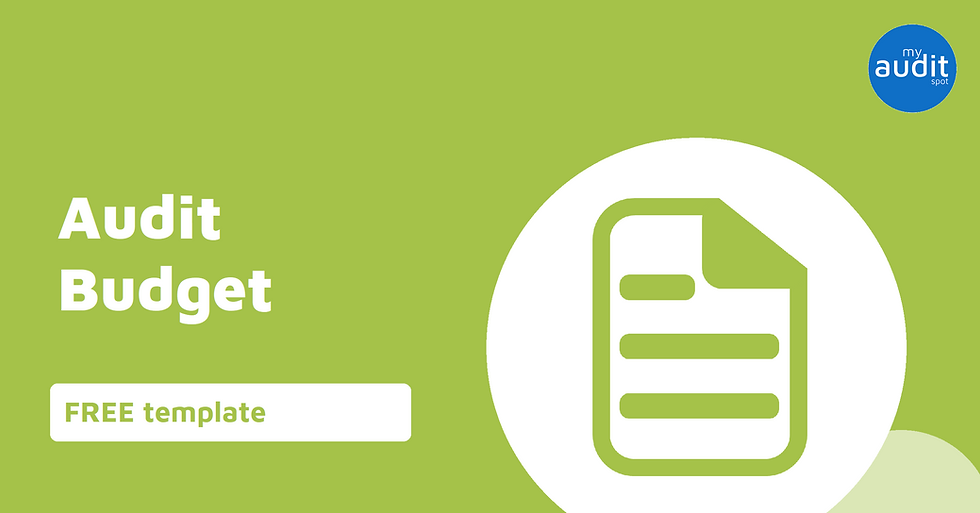Audit Planning - Audit Budget Template Workpaper
- My Audit Spot

- Apr 4, 2019
- 2 min read
Updated: Mar 21, 2020
Whether operating as an in-house internal audit function, or performing internal audit services for a client, a budget is an important document that should be prepared at the beginning of each review.
A budget should not just be 'slapped together' as part of the audit admin processes. It is important that a budget is consciously thought out, with consideration given to some of the following factors:
Amount of effort required per scope area;
Number of resources required (and any specialists);
The level and rate (where applicable) of audit team members involved;
The skills of the client / business area to be audited, and the level of involvement required in managing them throughout the audit process; and
Technicality of the topic (do we require specialists knowledge, or will it require multiple reviews?); and
Ease of finalising an audit report.
A preview of the budget template is included below:
As you proceed through the planning process, you should begin to form an answer against each of the above points. This will help you to develop a realistic budget.
A budget is important as it:
Holds the audit team accountable and can prevent slippage;
For private firms, helps to manage costs and work within margins;
Helps future auditors understand the length of time taken to complete the audit procedure; and
Can show areas that required significantly more effort than required.
The budget should be updated on a regular basis (weekly), and communicated to all team members to ensure they are aware of the current position.
It is essential that a budget is never seen as a constraint. A budget should not impact the level of detail, effort or time required to complete the audit procedures. A budget should not impact on audit quality.
Simply CLICK HERE to download your FREE template.
To buy an editable version of the template, PLEASE CLICK HERE.














Comments